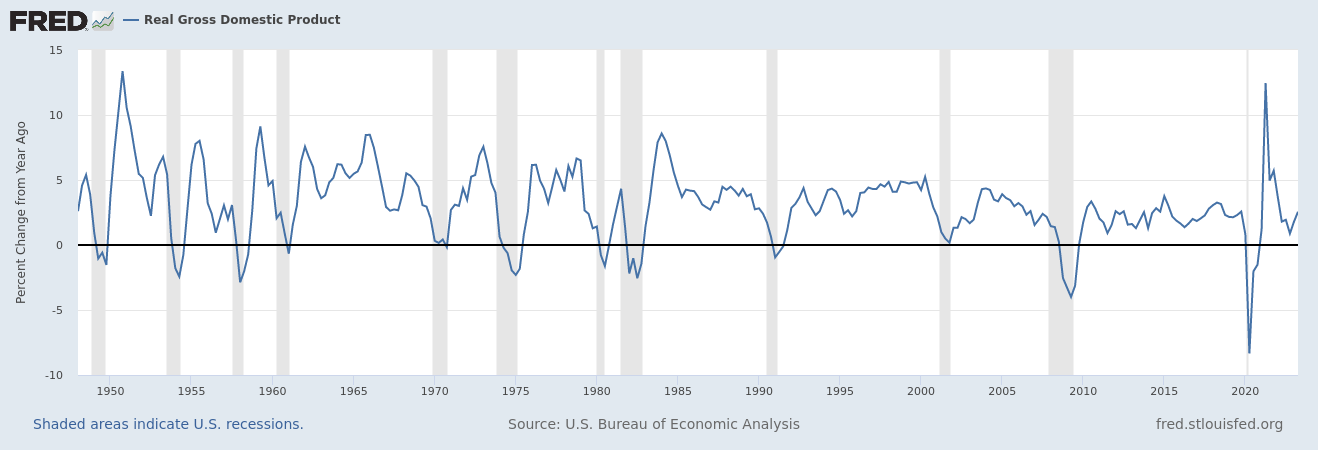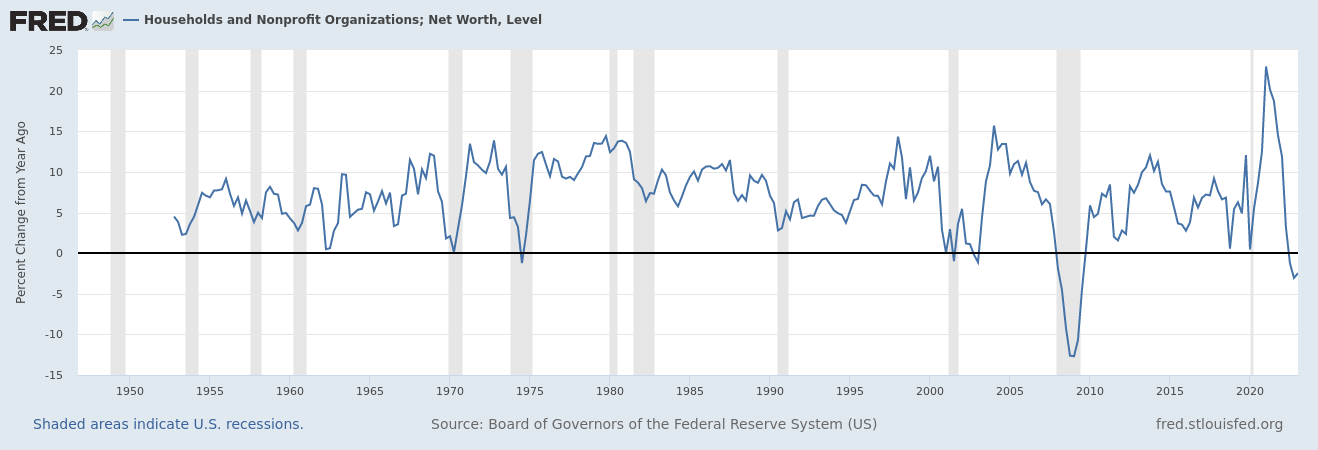Your question was...
GDP is so used that “Economic growth” is often defined as the variation of GDP from one year to the next. Why isn’t “Economic growth” defined as the variation of NWC?
You probably don't intend to say "variation of NWC" since the C means change so in your sentence "variation" might be redundant.
The populace of a country is interested in aggregate production, the P in GDP, because the aggregate production is sold for aggregate income in the form of money. This is very relevant to the lives of individuals. If aggregate income is growing fast, on a personal level an individual's income is more likely to be growing fast, their investments are more likely to be appreciating or paying bigger dividends, and it is more likely that changing jobs is easier. For individuals, this is better than a recession when individual incomes might stagnate, investments might lose value and dividends get cut, and there is increasing unemployment. Recessions are relevant to the lives of individuals. Usually people are talking about real GDP, so here's the graph.
Suppose you define NW as the aggregate net worth of all of the people in a country and NWC as the one year change in NW. Different people have different savings rates. Some people have a negative savings rate, for example, some retired people. These choices have much to do with a person's age and personal preferences such as their propensity to consume. Some people have no savings so NWC is less relevant to their lives. NWC does not reflect the individual net worth change of the most risk averse investors that are holding low interest rate securities and cash, so it is less relevant to their lives. People saving for retirement are more interested in their own change in net worth than the national NWC. In summary, NWC is less relevant to most people than changes to real GDP.
"Economic growth" is usually short-hand for "growth in economic activity". As 1muflon1 has alluded to, the most important reason why NWC is a flawed measure of growth in economic activity is because it does not try to measure growth in economic activity. Real GDP does; NWC does not.
The real estate market and the stock market and the bond market are a big part of NWC. People tend to specialize so people who are interested in these markets can look at them individually so NWC might be less relevant than otherwise. These markets are subject to valuation changes that might not be reflective of growth in economic activity. NWC will be influenced by small business valuations and since that's an illiquid market the numbers are unreliable.
NW, and by extension NWC, is missing something important that is relevant to the true net worth of individuals and that is future taxes which is unknown and depends upon government policy. NW is also missing some national resources. For example if a natural resource is not exploitable because the government policy is not to issue the relevant permits, it will be excluded from NW. Some national resources are illiquid and invaluable. Unknowables, missing potential values, and illiquidity are factors that, and invaluability are some of the flaws in NWC.
Here's an NWC graph that is not inflation adjusted.

